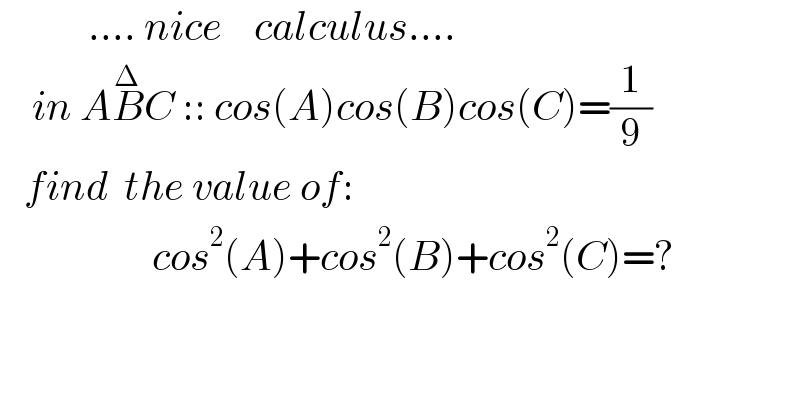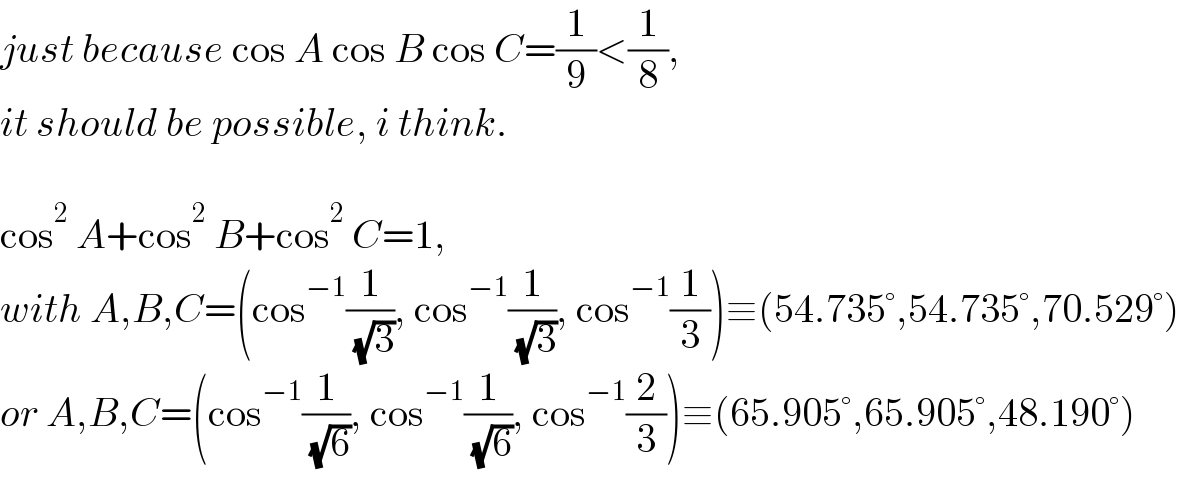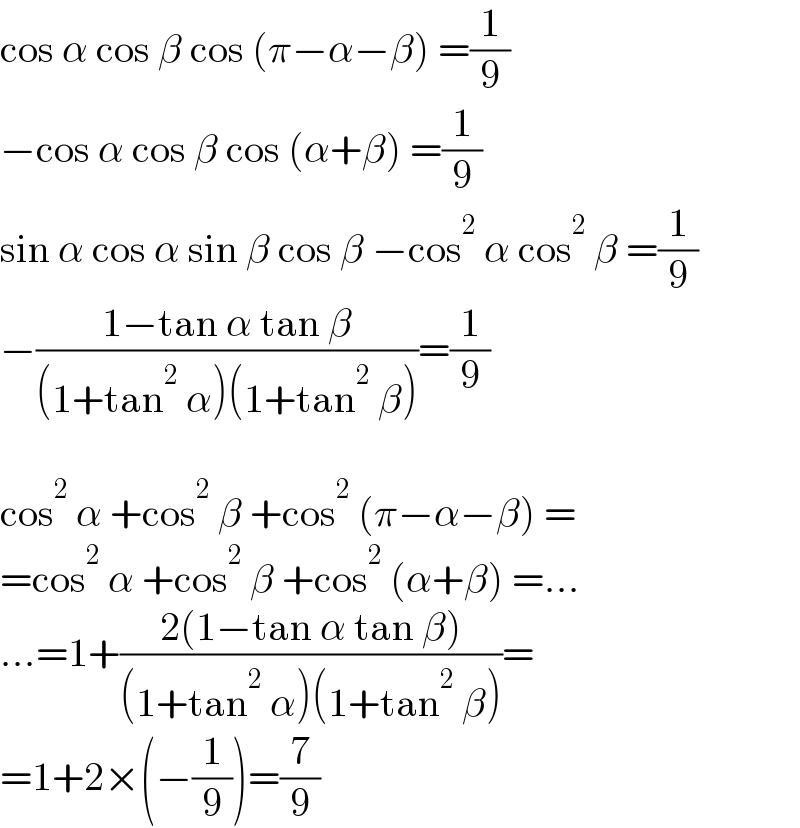
Question and Answers Forum
Question Number 136094 by mnjuly1970 last updated on 19/Mar/21

Commented by MJS_new last updated on 19/Mar/21

Commented by mr W last updated on 19/Mar/21

Commented by MJS_new last updated on 19/Mar/21

Commented by mr W last updated on 19/Mar/21

Commented by MJS_new last updated on 19/Mar/21

Answered by MJS_new last updated on 19/Mar/21

Commented by mr W last updated on 19/Mar/21

Commented by MJS_new last updated on 19/Mar/21

Commented by mr W last updated on 19/Mar/21

